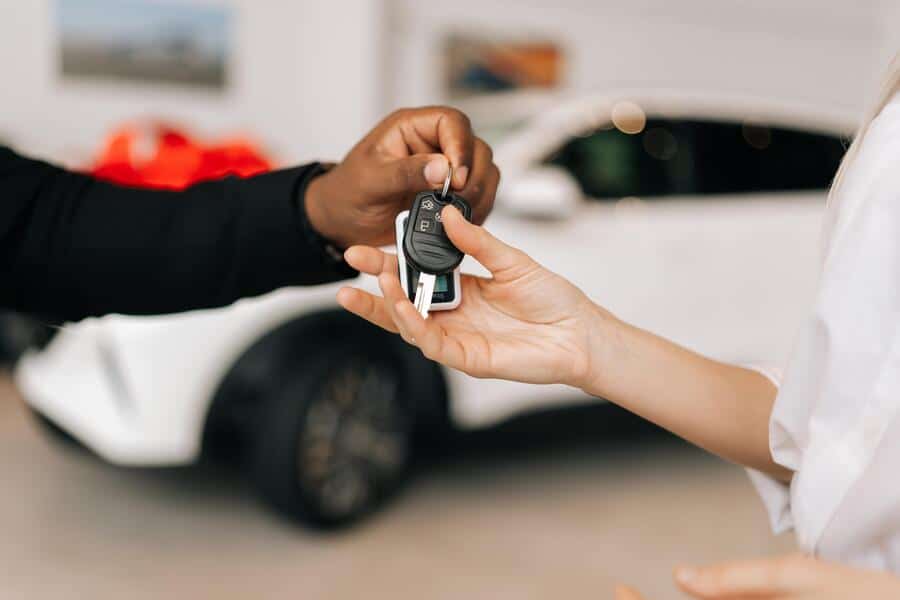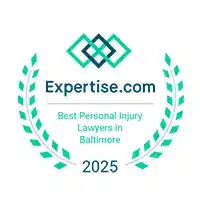Liability for Accidents Involving Borrowed Cars in Maryland

Imagine you lend your car to a friend for a quick errand in Baltimore, and they end up in an accident. The crash results in severe injuries to the other driver, leaving you to wonder—who’s responsible for covering the damages? In Maryland, understanding your liability in such situations is crucial, as you may be held accountable even though you weren’t behind the wheel.
When someone else drives your car, it’s crucial to understand the concept of vicarious liability. This legal principle means that as the vehicle’s owner, you might be held responsible for the actions of the person who borrowed your car.
This can be particularly true if the driver acted on your behalf or if you had the right or ability to control their actions at the time of the accident. Understanding this concept is key to being informed and prepared in such situations.
Laws surrounding borrowed car accidents in Maryland are complex and can vary depending on the circumstances. In some cases, the owner’s insurance policy may need to cover the damages, while in others, the driver’s insurance could be on the hook. It’s important to understand these distinctions to protect yourself and know what to expect if you find yourself in this situation.
How Is Liability Determined in a Borrowed Car Accident in Maryland?
Determining liability in a borrowed car accident in Baltimore, Maryland, involves understanding how insurance policies apply when someone other than the owner is driving the vehicle. In Maryland, the insurance generally follows the car, meaning the car owner’s insurance policy is typically the first to respond if an accident occurs.
If you lend your car to someone with express or implied permission, your insurance, including Personal Injury Protection (PIP) coverage, usually covers the guest driver.
Personal Injury Protection (PIP) Coverage
PIP coverage is a critical aspect of Maryland’s insurance landscape. Regardless of fault, it is designed to cover medical expenses and lost wages for the driver and passengers.
As we mentioned, when you allow someone to borrow your car, your PIP policy generally extends to them, providing coverage for these expenses. However, there is an important exception to this rule. If the guest driver owns a car and has chosen to waive their PIP coverage, they may not be eligible for PIP benefits under your policy.
In an accident, the financial protection PIP offers could be significantly limited, potentially leaving the guest driver to cover their own medical expenses.
Determining Fault and Liability
In addition to PIP coverage, liability for damages in a borrowed car accident depends mainly on who is at fault. Maryland operates under a contributory negligence rule, which is stricter than most other states.
Under this rule, if the guest driver is found even slightly at fault for the accident, they could be barred from recovering any damages from the other party involved. This strict approach makes it crucial to understand the potential risks when lending your car to someone else.
Financial Responsibility
If the guest driver is found at fault, your insurance policy will typically cover the damages up to the policy limits. However, if the costs of the accident exceed these limits, the guest driver could be held personally responsible for the remaining expenses. This could include paying out-of-pocket for damages to other vehicles, property, or even medical bills for the injured parties.
Understanding how liability is determined in a borrowed car accident is essential, especially in a busy city like Baltimore, where traffic accidents are relatively common. Knowing that your PIP coverage generally extends to a guest driver—unless they’ve waived their own—can provide peace of mind when lending your vehicle.
However, the implications of Maryland’s contributory negligence rule and potential financial responsibilities mean it’s crucial to be fully aware of the risks involved.
If you or someone you know has been involved in a borrowed car accident, consulting with an experienced Baltimore car accident lawyer can clarify the situation and help you deal with the complexities of liability and insurance coverage.
How Does Permission Work in Borrowed Car Accident Claims in Baltimore?
In Baltimore, “permissive use” significantly determines coverage and liability in borrowed car accident claims. Permissive use occurs when the car owner gives someone else explicit or implicit permission to use their vehicle.
The Importance of Explicit and Implicit Consent
Permission can be granted explicitly, such as when you directly tell someone they can use your car, or implicitly, like when you hand over your keys without objections. Both consent forms are crucial because they determine whether the guest driver is covered under your insurance policy in the event of an accident.
For example, if you regularly allow a family member or friend to borrow your car to go to work, this ongoing practice may be seen as implicit consent. In such cases, your insurance would likely cover any accident they are involved in while driving your vehicle.
Non-Permissive Use Scenarios
However, non-permissive use, where the driver takes the car without the owner’s permission, changes the dynamics of insurance coverage. If someone drives your car without your consent and gets into an accident, your insurance might not cover the damages.
In these cases, the driver might be held personally liable for the costs associated with the accident. Additionally, the driver’s own insurance may refuse to cover the accident, leaving them with significant financial responsibility. Non-permissive use is particularly problematic because it can lead to complex legal disputes over who should bear the financial burden.
Permission and Legal Implications
The concept of permission is vital in borrowed car accident claims in Baltimore. Insurance companies often scrutinize whether permission was granted to determine coverage eligibility. Without permission, disputes may arise, complicating the claims process.
It’s essential to be mindful of who you allow to drive your car and under what circumstances, as this can significantly impact your financial and legal responsibilities in the event of an accident. If you’re involved in a situation where permission is disputed, consulting with an attorney can help clarify your rights and obligations.
Can an Employer Be Held Responsible if You Crash a Work Vehicle in Maryland?
In Maryland, if you crash a work vehicle, your employer could be liable for the damages. This concept is vicarious liability, where an employer may be liable for their employee’s actions while performing job-related duties.
If you were driving the work vehicle within the scope of your employment—such as making deliveries, running errands for your boss, or traveling between job sites—your employer’s insurance is generally responsible for covering the damages resulting from the accident.
Employer liability hinges on whether the employee acted within the scope of their job during the accident. If the crash occurred while you were performing work-related tasks, the employer’s insurance typically covers the damages. However, if you were using the work vehicle for personal reasons—such as running a personal errand unrelated to your job—the situation changes.
In such cases, your employer might argue that the accident occurred outside the scope of employment, potentially shifting liability away from them. Depending on the specifics, you could be held personally responsible for any damages, especially if the employer’s insurance denies the claim.
Independent Contractors and Employer Responsibility
It’s also important to consider the distinction between employees and independent contractors. If you’re classified as an independent contractor, your employer may not be held liable for accidents involving a work vehicle.
Independent contractors may be responsible for their own insurance and liability, meaning you might need to cover the damages yourself. However, if you can prove that you were under the employer’s direct control during the accident, there might be a case for employer liability.
Legal Implications for Employers and Employees
Understanding the nuances of employer liability in work vehicle accidents is crucial for both employees and employers in Baltimore, Maryland. If you’re involved in a crash while driving a work vehicle, it’s essential to immediately report the incident to your employer and review your insurance coverage.
What Happens if My Car is Stolen and the Driver Crashes It?
If your car is stolen and the thief crashes it, you typically won’t be held liable for the damages caused by the accident. In Baltimore, Maryland, liability for an accident generally hinges on who had permission to drive the vehicle.
Since a thief does not have your permission, they are not covered under your insurance policy. Your liability coverage would not apply to any damages or injuries resulting from the crash. Instead, the thief would be responsible for any damages or injuries caused during the accident.
Insurance Coverage and Stolen Vehicles
Even though you’re not liable for the accident, you might still face financial consequences. For example, if your stolen car is damaged in the crash, your insurance will only cover the repairs if you have comprehensive coverage.
Comprehensive insurance protects against non-collision events like theft, vandalism, or weather-related damage. If you only have liability coverage, the minimum required in Maryland, you’ll likely have to pay for the repairs out of pocket. It’s essential to review your insurance policy to understand what is covered in the event of a stolen vehicle crash.
Reporting the Theft Immediately
To protect yourself, it’s crucial to report the theft to the police immediately. A prompt report helps recover your vehicle and establishes that the car was stolen before the accident. This documentation is vital when dealing with your insurance company and ensuring you’re not held responsible for any damages or legal issues resulting from the crash.
Additionally, you should notify your insurance company immediately, as they must know the car was stolen to handle any claims properly.
While you’re generally not liable for accidents involving a stolen vehicle, the situation can still lead to legal and financial complications. If the thief is caught, they may be prosecuted and held responsible for the damages.
What Are Some Reasons The Insurance Company Might Deny My Claim?
Understanding why an insurance company might deny your claim is essential in the aftermath of a car accident. Insurance companies can reject claims for several reasons, often based on their investigation and policy specifics.
Here are some common reasons why a claim might be denied:
- Lack of Permission: If the driver who crashed your car did not have your express or implied permission, the insurance company might deny your claim. Policies typically cover only authorized drivers, so a lack of permission can lead to a denial.
- PIP Waivers: If the guest driver has their own car and chooses to waive their Personal Injury Protection (PIP) coverage, your insurance company may deny PIP benefits under your policy. In Maryland, drivers can opt out of PIP coverage, which affects their ability to claim PIP benefits if they are involved in an accident.
- Thorough Investigation: Insurance companies perform detailed investigations to validate claims. They examine the accident details, driver history, and reporting timelines. Any discrepancies or delays in reporting can lead to claim denial.
Ensuring you provide accurate information and cooperate with the insurance company’s investigation can help avoid potential issues with your claim.
Knowledgeable Auto Accident Attorney in Baltimore, Maryland
Knowing your rights and responsibilities is the first step in protecting yourself from unexpected liabilities in situations where someone who borrows your car gets in a crash. If you or someone you know has been involved in an accident while driving a borrowed car, seeking professional legal advice is essential to ensure that all parties are treated fairly under the law. John Leppler, a car accident lawyer in Baltimore, Maryland, has extensive experience and understands the complexities of auto accident claims.
Unlike large mega-firms, John is dedicated to providing personalized attention to every client. He is always available to speak with you directly, answer your questions, and guide you through the legal process. If you’ve been involved in a car accident and need expert legal assistance, don’t hesitate to contact Leppler Injury Law today for a free consultation.







